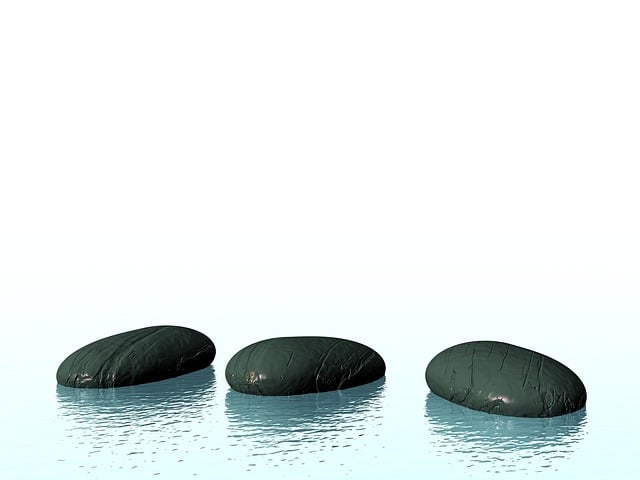Cold plunging, a natural therapy involving brief exposure to extreme cold, effectively manages stress and anxiety by triggering physiological responses that release endorphins and slow vital signs. Benefits include improved blood circulation, enhanced immunity, and mental relaxation, making it a powerful tool for overall well-being. Regular cold water immersion can significantly reduce anxiety, promote mental clarity, and cultivate tranquility, offering an accessible way to achieve physical and psychological balance.
In today’s fast-paced world, managing stress and anxiety is more crucial than ever. Among the many holistic approaches gaining popularity is cold water immersion, or what some call a ‘cold plunge’. This ancient practice offers a simple yet powerful way to combat mental health challenges.
Our article explores the therapeutic benefits of cold plunges for stress and anxiety relief, delving into the science behind this natural remedy. We’ll guide you through incorporating cold exposure into your routine and provide tips for maximizing its calming effects.
Understanding Cold Plunge for Stress and Anxiety: Unlocking the Potential of Cold Water Therapy for Mental Health
Cold plunging—submerging oneself in cold water—is gaining popularity as a powerful tool to combat stress and anxiety, offering a natural and effective way to enhance mental well-being. The practice involves briefly exposing yourself to extremely cold temperatures, typically through an ice bath or cold shower, lasting anywhere from 10 seconds to several minutes. This intense stimulation triggers a range of physiological responses in the body, which can have profound effects on reducing stress levels and promoting relaxation.
The benefits of cold plunges for stress relief are well documented. Cold water therapy stimulates the release of endorphins, often referred to as “feel-good” hormones, which act as natural painkillers and create a sense of calm. It also prompts the body’s sympathetic nervous system to activate its ‘rest and digest’ mode, slowing heart rate and reducing muscle tension. This sudden exposure to cold can be a game-changer for those dealing with anxiety, as it helps to quieten the mind and alleviate symptoms of overactivation in the brain’s stress response system. The calming effects of cold plunges are further enhanced by their ability to improve blood circulation and boost the immune system, leaving you feeling refreshed and grounded.
The Science Behind Cold Water Therapy: Benefits of Cold Plunges for Stress Relief
The Science Behind Cold Water Therapy: Benefits of Cold Plunges for Stress Relief
Cold water therapy, also known as cold plunging or hydrotherapy, has gained popularity due to its surprising mental health benefits. When you immerse yourself in cold water, whether it’s a quick splash or a prolonged cold plunge, your body undergoes physiological changes that can significantly reduce stress and anxiety levels. This ancient practice triggers a response from your sympathetic nervous system to the cold, stimulating the release of endorphins—natural mood lifters known as “feel-good” hormones. Additionally, exposure to cold water increases noradrenaline, which helps manage feelings of stress and prepares your body for challenges.
The calming effects of cold plunges extend beyond these hormonal responses. The sudden shock of cold water can effectively jolt your mind out of stressful thoughts, promoting mental clarity and a sense of relaxation. Many people find that regular cold plunges help reduce the symptoms of anxiety disorders and improve overall mental well-being. Moreover, cold water therapy is known to boost circulation, enhance immune function, and even support muscle recovery, making it a versatile tool for achieving both physical and psychological balance through a simple, yet powerful practice like cold water immersion.
Incorporating Cold Exposure for Anxiety Reduction into Your Routine
Incorporating cold exposure into your daily routine can be a powerful tool in managing anxiety and promoting mental well-being. Cold water therapy, such as a cold plunge or immersion, has gained recognition for its ability to provide immediate stress relief and enhance overall calmness. The practice involves subjecting yourself to cold temperatures, often through quick dips in ice-cold water, which triggers a physiological response that can help reduce anxiety symptoms.
When you immerse yourself in cold water, your body responds by stimulating the release of endorphins, often referred to as ‘feel-good’ hormones, which can boost mood and create a sense of relaxation. Additionally, the shock of cold water helps regulate the nervous system, slowing down rapid breathing and heart rate, thereby calming the mind. Regular cold plunges can be an effective way to break free from anxious thoughts, reduce tension in the body, and cultivate a deeper sense of tranquility.
Experiencing Calming Effects of Cold Plunges: Tips for Optimal Relaxation with Cold Water Immersion
Experiencing the calming effects of cold plunges involves more than just submerging yourself in icy waters. While the initial shock can be jarring, consistent practice can lead to profound mental and physical benefits. Cold water therapy has been shown to significantly reduce stress and anxiety levels by stimulating the release of endorphins, often referred to as “feel-good” hormones. The cold exposure also triggers a physiological response that enhances blood flow, promoting better circulation and oxygenation throughout the body.
For optimal relaxation with cold water immersion, focus on slow, controlled breaths during the plunge. Engage in mindful practices beforehand, such as meditation or deep breathing exercises, to prime your mind for a calming experience. Choose locations where you feel safe and comfortable, whether it’s a natural body of water like a lake or river, or a designed cold plunge facility. Gradually adjust the temperature to avoid significant shock to your system, allowing your body time to acclimate. Regular practice can help build resilience to cold, making each immersion more enjoyable and effective for stress relief.
Integrating cold water immersion into your daily routine can be a powerful tool to combat stress and anxiety, offering significant mental health benefits. By embracing the therapeutic effects of cold plunges, you can unlock a simple yet effective method to reduce anxiety, promote relaxation, and enhance overall well-being. With consistent practice, cold exposure becomes a versatile strategy for navigating life’s challenges, allowing you to cultivate resilience and a profound sense of calm.
